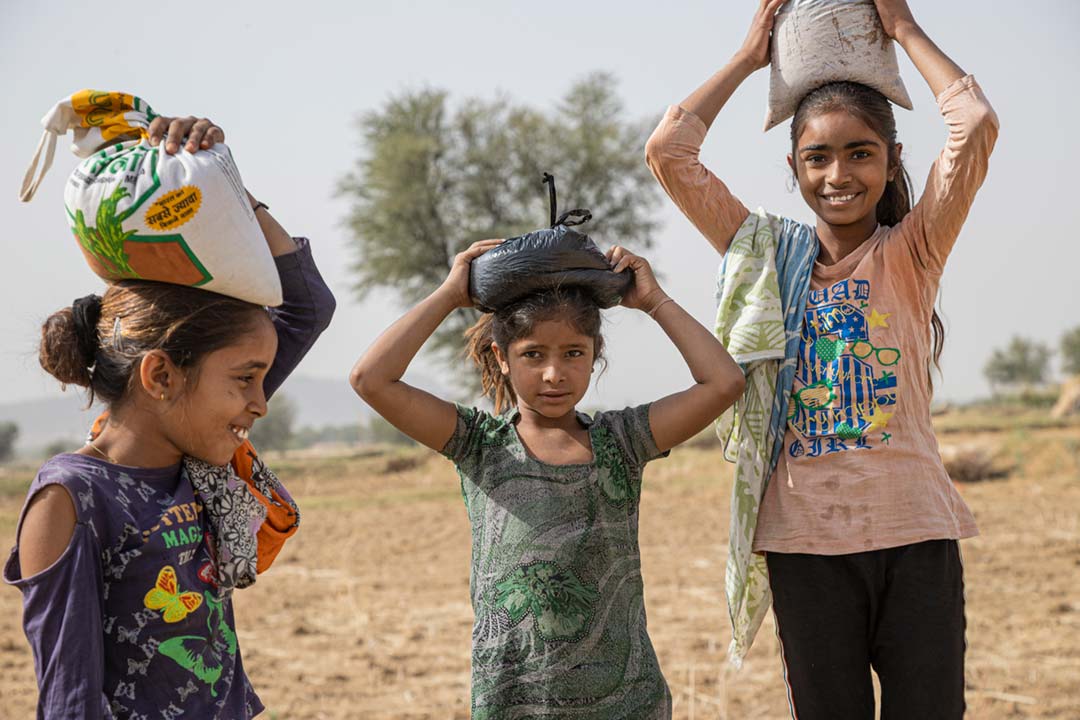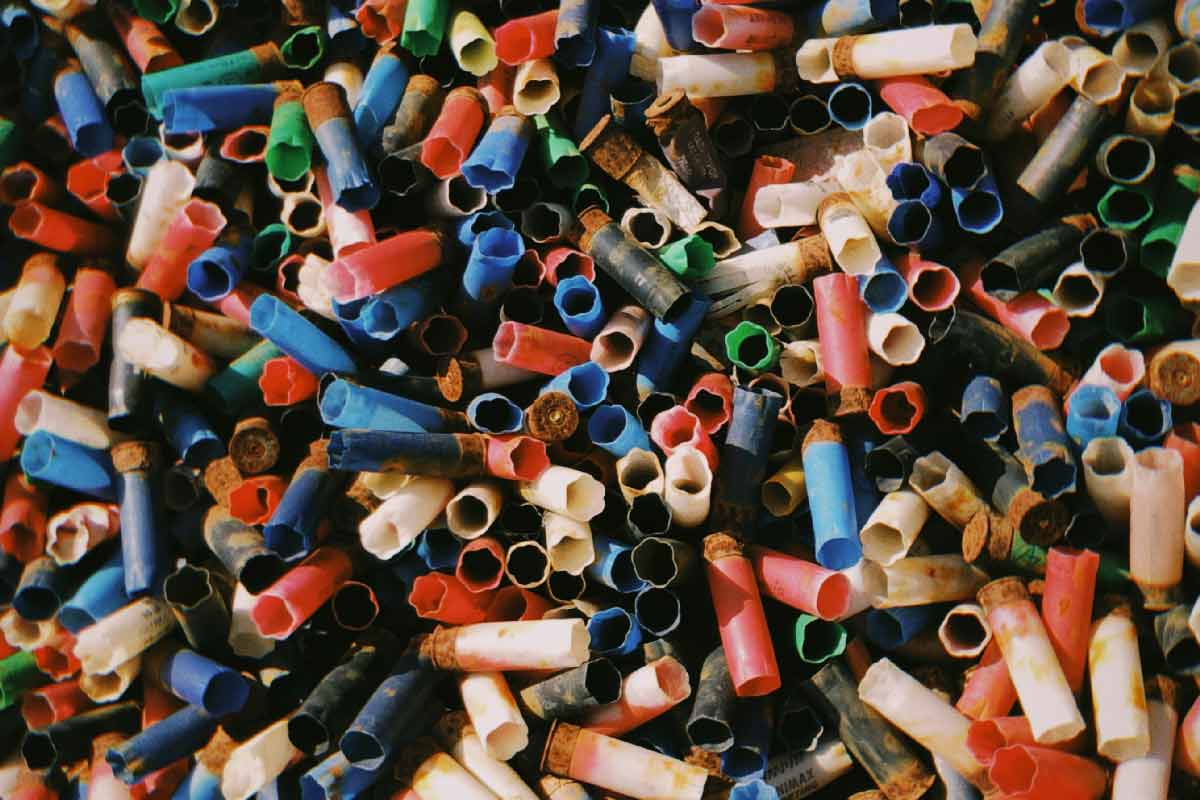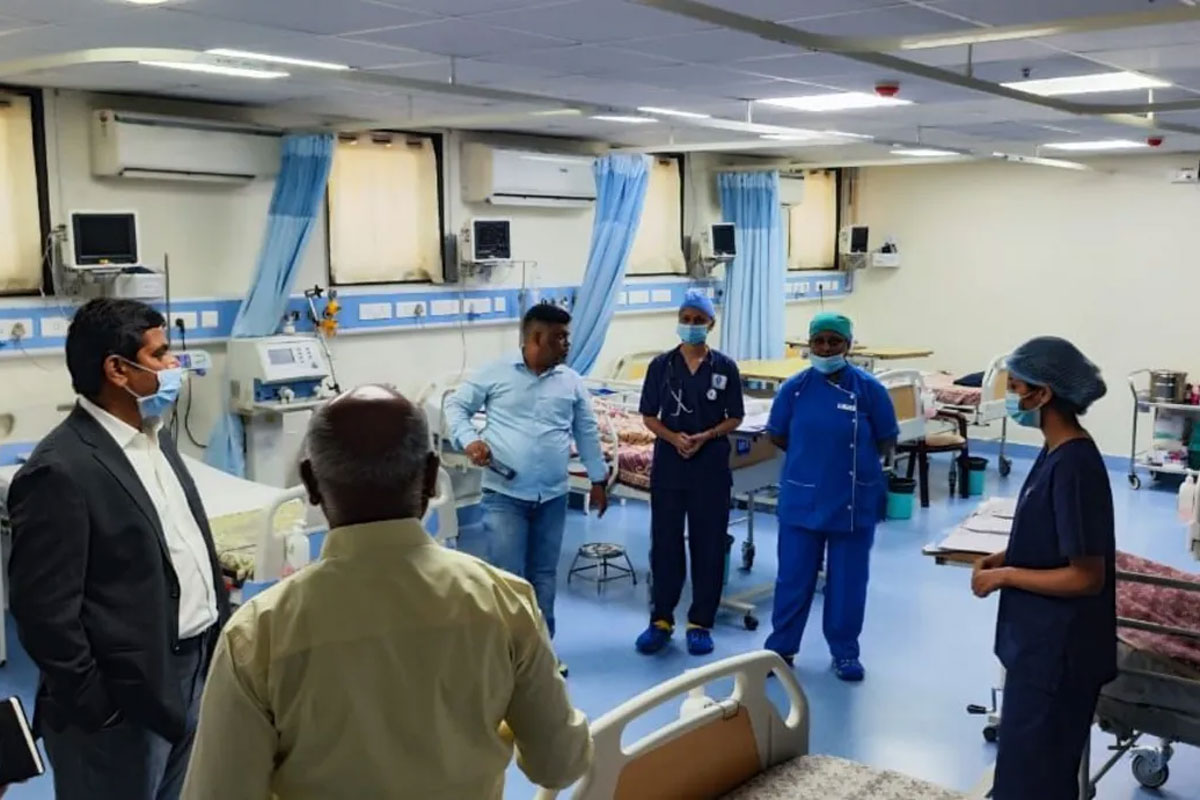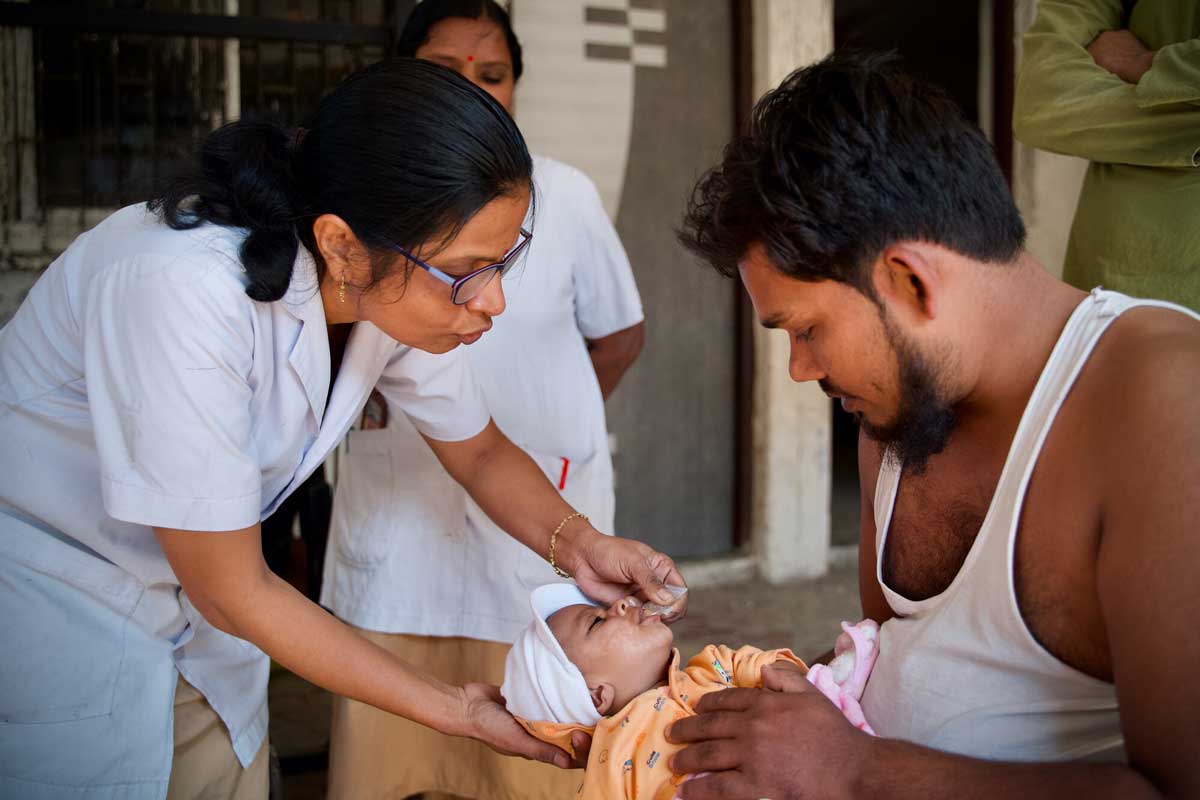India resolves to reduce cervical cancer by vaccinating girls
As India plans to roll out HPV vaccines nationwide, TV Padma surveys the state of play in a country that currently sees one cervical cancer death every seven minutes.
- 19 March 2024
- 6 min read
- by T V Padma

India plans a national drive to vaccinate girls between nine and 14 years against the human papillomavirus (HPV) that causes cervical cancer, the country's finance minister has announced .
While the country has not announced the exact date for the campaign, finance minister Nirmala Sitharaman said in her interim annual budget speech in February, "Our government will encourage vaccination for girls in the age group of 9 to 14 years for the prevention of cervical cancer." India goes to the polls in April 2024, and the final annual budget will be presented in July by the incoming government.
The country records one new case of cervical cancer every four months, and one death every seven minutes.
Although the HPV vaccine was introduced in India in 2008, it is yet to be included in the country's universal immunisation programme. "HPV vaccination was introduced into immunisation programmes in Punjab and Sikkim (states) in 2016 by the respective governments," Prashant Mathur, director of the National Centre for Disease Informatics and Research, Bengaluru, told VaccinesWork. "The coverage was high, with 97% of the targeted girls successfully vaccinated. At the national level, it is being planned to be rolled out."
India's efforts are in line with the all-out international drive to eliminate the vaccine-preventable cancer among women. In March, global health organisations including the World Health Organization (WHO) and Gavi announced major new policy, programmatic and financial commitments by governments, donors and multilateral institutions, including nearly US$ 600 million in new funding, to eliminate cervical cancer." The global health partners stated, "If these ambitions to expand vaccine coverage and strengthen screening and treatment programmes are fully realised, the world could eliminate a cancer for the first time."
Long road ahead
While rates of cervical cancer are declining in India, there is a long road ahead to elimination. The country records one new case of cervical cancer every four months, and one death every seven minutes. Currently, there are 340,000 cases in the country. It is the third most common cancer in India, and second most common among women, with over 127,000 new cases and about 80,000 deaths reported in 2022.
Cervical cancer accounts for one tenth of all cancers in Indian women, says Mathur. The country's north-eastern states record both the highest and lowest incidence rates – Papum Pare in Arunachal Pradesh and Aizawl in Mizoram are hard-hit, with 27.7 cases and 27 cases per every 100,000 women respectively. The lowest rates of cervical cancer are observed in Dibrugarh district in Assam, with about 5 cases per 100,000 women.
Currently, roughly two thirds of the Indian women diagnosed with cervical cancer will die of the disease. This can only mean women are presenting with late-stage cancers, and that preventive services are not reaching the majority of girls and women
In India, cervical cancer is screened by the visual inspection of the cervix for abnormalities after applying diluted acetic acid, mostly as part of the public health system, says Mathur. Screening is covered under the country's national programme for prevention and control of non-communicable diseases.
Estimates of the percentage of women screened in India for HPV vary widely, but concur that screening is below par. For example, a 2019 study by Ravi Mehrotra, adjunct professor at the Rollins School of Public Health, Emory University, US, and director of the non-profit Indian Cancer Genome Atlas Foundation, found that less than one third of the women surveyed reported having been screened, and these were mostly women in urban areas. Meanwhile, data from a factsheet of the HPV Information Centre managed by the Catalan Institute of Oncology (ICO) and International Agency for Research on Cancer (IARC) indicates that 2% of women have been screened for the cancer, which is aligned with India's fifth National Family Health Survey NFHS-5 survey's data of cervical cancer screening at 1.97%.
Have you read?
"My experience [of India] has been that affordable screening is available in public sector clinics for most women who are able to access urban or peri-urban facilities," says Heather White, executive director of TogetHER for health, which is advocating for an end to cervical cancer. "Of course, screening services tend to be harder for rural women to access, though several non-profits like CAPED (Cancer Awareness, Prevention and Detection) and others do offer screening camps to provide these services in areas where they are not readily available."
Indian data available with the HPV Information Centre shows a mortality-to-incidence ratio of 62%, which means that roughly two-thirds of women diagnosed are going to die of the disease, explains White. "That can only mean that women are presenting with late-stage cancers, and that preventive services are not reaching the majority of girls [vaccination] and women [screening]."
Vaccine products
In India, two HPV vaccines were licensed in 2008: a quadrivalent vaccine known commercially as Gardasil, and a bivalent vaccine called Cervarix. Both vaccines provide approximately 90% protection from cervical cancer with the antibodies remaining stable for at least 10 years. In September 2022, India launched a home-made product marketed as Cervavac.
Currently, HPV vaccines in India are only available under prescription by private practitioners. "HPV vaccination uptake in India is low due to its high cost, misinformation regarding safety and effectiveness, and discouraging cultural perceptions for vaccines," says Mehrotra. The vaccine costs approximately 3,000 rupees or US$ 36 per dose.
Those cultural perceptions include the stigma surrounding reproductive health issues in India, especially related to sexual organs like the cervix, and low awareness of the need for HPV vaccination, he elaborates. Other observers note that the same concerns can negatively impact uptake of screening.
Game changer?
The challenges notwithstanding, health experts are optimistic about the prospective impact of a national HPV vaccination programme.
"I absolutely believe that it will be a game changer if it's widely available, there's reliable, evidence-based message/communication campaigns around it, and it can be accessed both in schools and out of schools," says White. "It will also be a game changer on the global stage, because having locally manufactured product for a country as large as India (where one in five cases currently exist) will radically shift the global supply."
“It is estimated that in a country like India, efforts for scaling up HPV vaccination covering 80–100% of target population together with two cervical cancer screenings per lifetime would help in achieving cervical cancer elimination by 2070–79.”
– Prashant Mathur, director of the National Centre for Disease Informatics and Research, Bengaluru
"For a long time, there has been a global shortage of HPV vaccine, which is one of the reasons why uptake has been low," says White. "If India can provide an affordable vaccine in the region, it will change the regional and global market dynamics for vaccination considerably."
In the four categories of the UN's Human Development Index (HDI), India – which ranks 132nd among 191 countries – falls in the third, "medium" category, after very high and high. "It is estimated that in a medium HDI country like India, efforts for scaling up HPV vaccination covering 80–100% of target population together with two cervical cancer screenings per lifetime would help in achieving cervical cancer elimination by 2070–79," says Mathur, citing a 2019 study in the Lancet.
HPV vaccination is "our best defence" in preventing HPV-related cancers, says Mehrotra. India has an impressive track record in its childhood immunisation programme and during the recent COVID-19 vaccination campaign. "Inclusion of HPV vaccine into the national immunisation schedule will undoubtedly boost the fight against cervical cancer," he adds.









